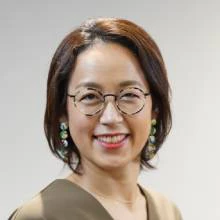 During an exposure trip in January 2023, Deputy Mayor of Fukuoka City, Mr. Hiroaki Mitsuyama, invited members of the Indian delegation and TDLC team to his office to mark the beginning of the Fukuoka-Ahmedabad collaboration in support of the Ahmedabad City Resilience Project (G-ACRP).
During an exposure trip in January 2023, Deputy Mayor of Fukuoka City, Mr. Hiroaki Mitsuyama, invited members of the Indian delegation and TDLC team to his office to mark the beginning of the Fukuoka-Ahmedabad collaboration in support of the Ahmedabad City Resilience Project (G-ACRP).
Ahmedabad, the largest city in the Indian state of Gujarat, is ranked among the most livable Indian cities due to its innovative urban infrastructure and vibrant economy. It is also among the cities being developed under the government’s Smart Cities Mission. Despite these achievements and a population of more than 7.5 million, the city continues to struggle to meet its water and sanitation needs, exacerbated by rapid urbanization, pollution, and climate change.
In November 2022, the World Bank approved a $280 million loan to the Gujarat Resilient Cities Project: Ahmedabad City Resilience Project (G-ACRP), specifically aimed at improving access to sustainable wastewater management services for over 7.3 million more Ahmedabad residents. For this to happen, the project needs to improve the city’s wastewater management system in four ways: i) developing resilient infrastructure for a wastewater network and treatment systems through long-term performance-based Design, Build and Operate (DBO) contracts, ii) establishing a GIS-enabled O&M planning and budgeting system, iii) utilizing digital systems for wastewater quality monitoring and industrial pollution risk early management, and iv) supporting policy reforms for enhancing the financial sustainability of service delivery. Overall, the project is expected to provide vital financial and technical assistance to Ahmedabad in adopting professional utility systems for sustainable service delivery along with developing critical wastewater infrastructure systems.
Gearing up to this challenge, the city government of Ahmedabad, especially the municipal commissioner and the municipal engineers, decided to seek some inspiration and guidance on how best to improve wastewater management services in the context of volatile environmental conditions.
The World Bank, drawing from global experiences, identified Fukuoka City, Japan, as an ideal partner.
A Tale of Two Cities
Fukuoka, with a population of 1.63 million, is known for its highly efficient solid waste management system (the “Fukuoka Method”), as well as for its successful urban development and regeneration programs that are led largely by the private sector. It also boasts of highly developed municipal infrastructure, particularly its water and sanitation systems after experiencing a severe drought in 1978. Today, Fukuoka, known as one of the world’s most livable cities, serves as a hub for cutting-edge industries, and is being developed as an advanced smart city through the Fukuoka Smart EAST initiative.
Because of these accomplishments, Fukuoka is among the top resources for knowledge and expertise that are showcased in knowledge exchange events delivered by the World Bank Tokyo Development Learning Center (TDLC), a partnership between the government of Japan and the World Bank that shares Japanese knowledge and experience in sustainable urban development. Through TDLC's City Partnership Program, knowledge exchange between municipal governments and operational support services are facilitated to enhance project design or support implementation of urban projects like the G-ACRP.
What began as a request from Ahmedabad for knowledge sharing and operational support across two regions and two cities, Fukuoka, Japan, on the one hand, and Ahmedabad, India, on the other, has become a sustained city partnership. As the technical leads of this collaboration, we have witnessed a remarkable synergy among these municipal governments and technical experts, catalyzing new ideas and technical solutions for Ahmedabad’s wastewater management challenges.
Developing Institutional Capacity and an Operations and Maintenance Culture
By applying knowledge from Fukuoka’s highly developed and well-managed wastewater management systems, our collaboration is strengthening the Ahmedabad Municipal Corporation’s (AMC) institutional and financial systems in five areas: i) asset management, including operations and maintenance; ii) quality monitoring and pollution early warning systems; iii) long-term resilient infrastructure planning; iv) reuse and management of wastewater; and v) improving financial sustainability in the water sector.
Our engagement started in January 2022, by bringing the Ahmedabad City Administrator (AMC) and his team of engineers to Fukuoka to see its wastewater systems. The exchanges involved sharing case studies, technical clinics, and site observation tours. The Fukuoka technical team participated in the first World Bank implementation support mission for G-ACRP in March 2023. The subsequent visit by a Fukuoka delegation to Ahmedabad has already improved Ahmedabad’s wastewater management practices. This mission crystallized what it takes to embed an operations and maintenance culture in a project, and how to implement a ledger system for better management of municipal assets. The Task Team’s and TDLC’s efforts connecting Fukuoka and Ahmedabad not only benefited the G-ACRP through technical inputs from Japan, but it has also initiated a more formalized, long-term partnership between these cities by joining the G20’s Urban 20 (U20) Summit in Ahmedabad in July 2023.
Firsthand exposure to Fukuoka’s wastewater facilities expanded AMC’s perspectives on resource efficiency, sustainable operations, financial sustainability, and the soundness of technical processes. Government officials from both cities developed an appreciation for the opportunities, experiences, lessons, and challenges faced by the other city. AMC understood that Fukuoka developed its sophisticated urban wastewater system over a long timeframe and through hard work, and is now devising a patient and strategic approach for their city.



Join the Conversation